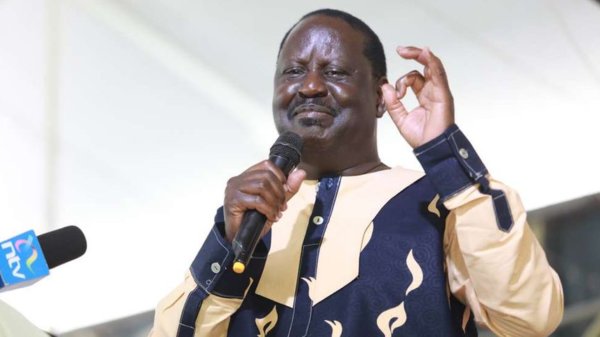“Kyrgitt, I read somewhere that mzee Jackson Kibor is worth over 6B shillings.
I’m trying to understand how an illiterate mzee can have such wealth yet wengine wetu tumesoma soma soma adi masters. Or is it Moi era corruption?”
Cliff…
Jambo. We need to unlearn alot of things now don’t we? Not every rich person is corrupt. The reason we all work hard is to be wealthy. When one achieves wealth courtesy of hardwork, it’s good to celebrate them.
I will take you through positive ethnic profiling.
Jackson Kibor is reputed to be worth Ksh 6B. Yes. But he is a Kalenjin old man. This means the quoted figure is a fraction of his real wealth.
I’ll take you through some ethno-cultural lessons. It is a taboo for a Kalenjin to boast, gloat, showoff, parade or talk about their personal wealth.
We all have cultures, and that is part of the Kalenjin culture. You will find many businesses ran or operated by Indians or any other tribe, you will not know it’s owned by a Kalenjin.
You will go to malls or hotels in the big city, you will not know who the owners are. If you asked me to declare my wealth today, I’ll simply downplay it and brush you off. Not out of secrecy, but out of norm.
It is a taboo in the Kalenjin culture to enumerate cattle and children. What you see in international superstars like Kipchoge’s humility is basically what Kalenjin subscribe to.
Conservative, bland, colorless but very precise and intentional with keeping low profiles.
Now, Kibor is a bonafide billionaire. He has consistently worked his way up in farming and transportation.
Rift Valley is the bread basket of Kenya. Farmers there earn hundreds of millions a year in large scale farming.
Kibor has tens of thousands of acres in maize. Yet he isn’t the largest supplier of maize to the nation. Anyone from Eldoret here will tell you he isn’t the wealthiest farmer there.
You’ve touched about education. Let me assist you to put things into perspective.
Of all major tribes of Kenya, only the Kalenjin and Maasai didn’t need the rural to urban migration in pursuit of greener pastures.
This is because, they have the land, the waters, the food and the animals. A Kalenjin person lives in the big cities as an option, not as a necessity. Ikiumana anarudi nyumbani tu.
It is difficult to find a Kalenjin in a slum, or a Kalenjin girl as a domestic worker. The culture doesn’t allow so. A Kalenjin will rather tend to his farm and cattle than work as a janitor anywhere, because he/she doesn’t have to.
You won’t hear a Cheptanui stuck in Saudi Arabia washing the floors. She rather gets married to Kiptanui who has one skinny cow as she tills her skuma wiki. Either that or she tries her legs in athletics or selling potatoes by the roadside.
Those in arid and semi arid areas like Kacheliba would rather indulge in hunting and cattle raids than to forego their genetic ethnic identities. Here men say, they rather die standing than live on their knees begging.
In lush places like Kericho or Nandi, the poverty index is minimal. This is because, due to multinational horticultural and agricultural companies, small scale farmers have access to regular income, however little.
The weather is very conducive for cash crops, animal keeping and food crops. The best performing Toyota Kenya branch for years has been the Kericho one. This is because, people there buy cars from the show room.
I grew up always tearing off the nylon off the seats and opening the glove compartment for the car manuals because, Marshalls EA used to sell brand new peugeots to tea farmers.
In areas such as Luo Nyanza, due to land infertility and the soil type, the community embraced education as a way out of poverty.
This is why most Luo are highly educated since before independence. Those who weren’t fortunate enough to attend formal schooling, honed their skills in artisanship and talent.
This is why most Luos are great in arts, craftsmanship and education. This also meant that, they migrated to the big cities for work opportunities hence you will find large Luo communities in Nairobi, Nakuru, Eldoret, Mombasa etc.
They have skills that other natives don’t have. Highly adaptive and intelligent. Due to proximity to the big capital city, when these communities migrated there, the Kikuyu living near nairobi had a chance to sell eggs, vegetables, and to be landlords to the migrants.
Over time, the Kikuyu communities near nairobi advanced in wealth generation. Bantus are historical merchants who traded with Arabs for thousands of years hence, their affinity to business enterprise. It’s a hereditary practice but can be learned and unlearned.
The Kamba people lived off the Mombasa Nairobi highway and became traders. Many of them migrated East to the coastal towns to be merchants.
To date, most native Coast people in the towns are either full Kamba or bred off the Kamba gene pool. Their entrepreneural forefathers saw an opportunity in mechanics and a specification in making and repairing tyres for the long haul vehicles passing through ukambani to and from Mombasa and hence, to date, even if you’re in Bomet or Isiolo, your best tyre expert will be a Mutisya.
The Maasai, owning millions of acres of land in Kenya, have over time sold cattle and land to provide meat, leather, glue and other items for the markets.
They have provided land for sale in their lands bordering nairobi such as kitengela, ngong and rongai seeing their families rake billions in collective revenues. One prized Zebu Bull is about 400k. There are families with 1000 of these. Selling only ten a year gives the owner 4M.
The normal cattle they have can fetch 50K a head. There are individuals with 5000, heads of cattle. Do the math.
In Kalenjin land where Kibor comes from, you’ll find a multi billionaire who prefers to drive a pickup and live in a simple house.
It’s not part of the culture to live showingly, not unless you’re D.B.K and you can’t help yourself.
So, Cliff, tembea Kenya and you’ll understand so many things. We are defined through historical practices and the circumstances of our geographies.
Kibor and many others are wealthy because, he has the land, the weather and the hardwork to produce and to sell.
Diversity is what makes us unique.
I speak of unlearning some things because, in a world that has pursued formal education and platitudes over entrepreneural skills, it’s easy for an educated person to term a less educated person as corrupt because of the high expectations of academia vis a vis the high returns of production.
In the West farmers like Kibor are known as country bumpkins. Very wealthy yet very conservative and traditional.
They make money from corn fields, lumberjacks and copper mining. We all aspire to be successful, one way is through education, another is through enterprise. Either way, success is success.
Click to Support KDRTV by Donating. Advertise with us. Contact Us, press releases.
Make KDRTV your home for the latest Kenya News bookmark our site. Make sure you follow us on Facebook, Twitter, and YouTube to stay Updates with the latest International and local Kenya News.
Subscribe to watch latests videos



































































